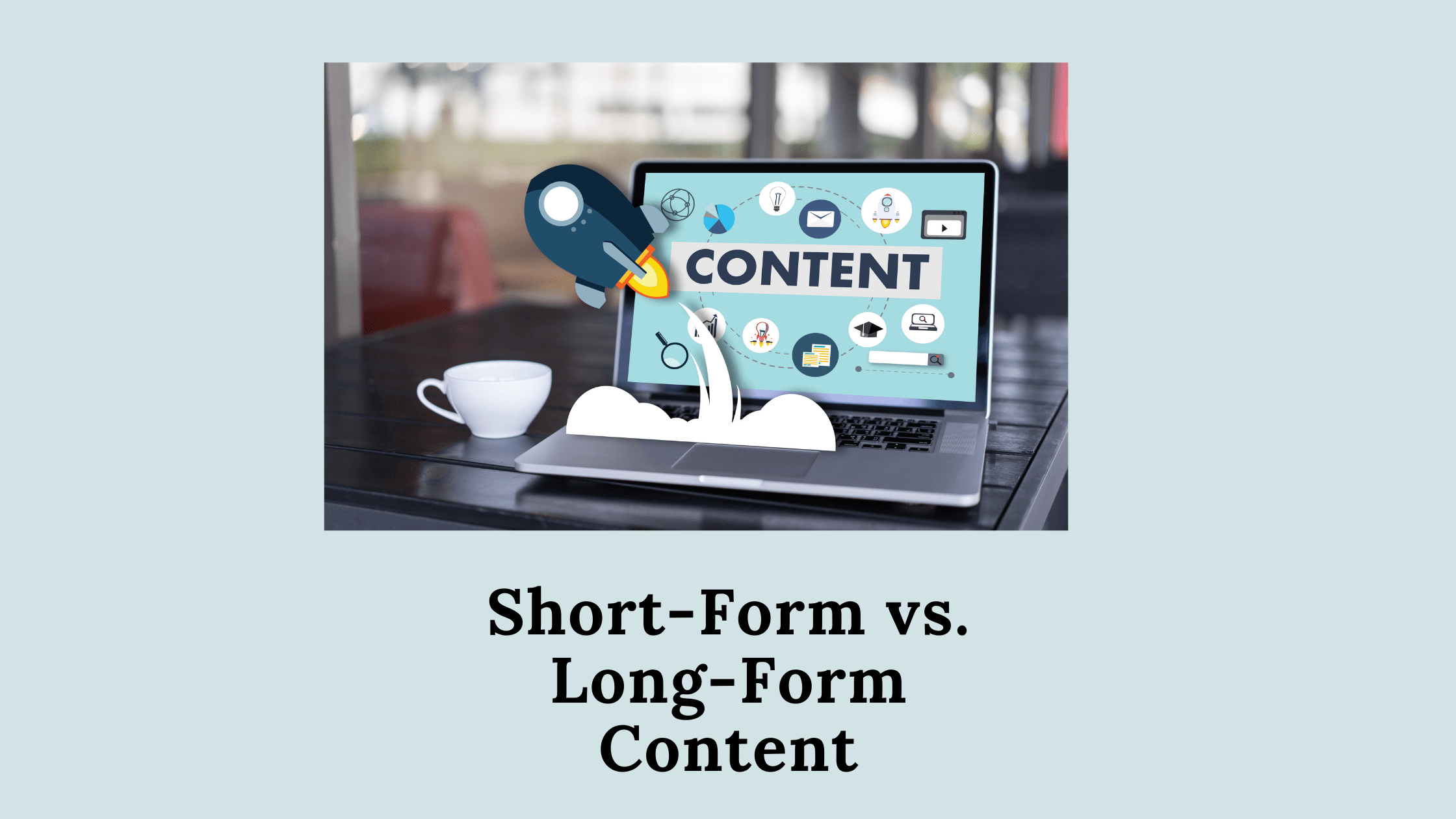There is a lot of debate surrounding Short-Form vs. Long-Form Content. Which one works best for your website? And, more importantly, which one works best for your audience? In this blog post, we will take a look at the pros and cons of Short-Form and Long-Form content, and help you decide which type of content is right for you.
What is Short-Form Content?
Short-Form Content is defined as content that is 500 words or less. This type of content is typically seen in articles, blog posts, social media updates, and email newsletters.
Pros of Short-Form Content:
- Easy to consume – short paragraphs and easy-to-read font make it easy for your audience to scan through your content quickly.
- Engaging – because Short-Form Content is concise and to the point, it can be more engaging than long-form content.
- Time effective – shorter pieces of content are often easier to write than longer pieces, so they can be a time saver.
Cons of Short-Form Content:
- Limited information – you may not be able to fit all of the information you want to share into 500 words or less.
- Not as in-depth – because Short-Form Content is concise, it may not be as in-depth as long-form content.
What is Long-Form Content?
Long-Form Content is defined as content that is more than 500 words. This type of content can take the form of articles, blog posts, case studies, white papers, and ebooks.
Pros of Long-Form Content:
- In depth – long-form content allows you to go into detail about a topic, providing your audience with more information than they would get from short-form content.
- Engaging – long-form content can be engaging if it is well written and formatted.
- Time effective – long-form content can be time consuming to write, but it often provides more value than shorter pieces of content.
Cons of Long-Form Content:
- Can be overwhelming – if your audience doesn’t have the time or patience to read through a long article, they may not stick around until the end.
- Boring – if you aren’t an engaging writer, long-form content can be very boring to read.
- So, which type of content should you use for your website? It depends on who your audience is and what you want to achieve with your content. If you are looking for something that is easy to consume and quick to write, Short-Form Content may be the right choice for you. However, if you want to go into more detail and provide your audience with a lot of information, Long-Form Content is the way to go. Whichever type of content you choose, make sure it is well written and engaging – otherwise, your audience won’t stick around long enough to learn what you have to say.
Does the Length of Your Content Matter?
The length of your content does matter – but not in the way you think.
When it comes to web content, longer isn’t always better. In fact, according to a study by Content Marketing Institute, shorter pieces of content are more effective than longer pieces. The study found that blogs with less than 1000 words get more social shares than blogs with more than 1000 words.
So, what does this mean for you? It means that you should focus on writing short, concise pieces of content that are easy to read and engaging. Long-Form Content can be great if you have the time and resources to produce it, but don’t forget about the benefits of Short-Form Content!
How Long Should a Blog Post Be?
The length of a blog post can vary depending on the topic and the audience, but as a general rule, it should be around 1000 words.
When it comes to writing blog posts, there is no one-size-fits-all answer to the question of how long they should be. However, as a general rule, you should aim for posts that are around 1000 words in length. This will allow you to provide your audience with enough information without overwhelming them or boring them to death.
If you are looking for an easy way to determine whether your blog post is too long or too short, ask yourself these two questions:
- Is my content easy to scan?
- Am I providing my audience with enough information?
If the answer to either of these questions is no, then your blog post may need to be longer or shorter.
How To Write Killer Long-Form Content
Now that you know the benefits of Long-Form Content, how do you go about writing it? Here are a few tips:
Research your topic – before you start writing, make sure you have a solid understanding of the topic you are discussing. This will help you to write something that is both informative and engaging.
Use statistics and examples – support your points with facts and examples to keep your audience interested.
Write for your audience – think about who your audience is and what they want to learn from your content. Tailor your content accordingly.
Be concise – avoid rambling on and on; get to the point quickly and efficiently.
Proofread! – make sure to proofread your work before publishing it to ensure accuracy and clarity.
Optimizing Long-Form Content for SEO
While Long-Form Content may not be as effective as Short-Form Content when it comes to social shares, it can still be a valuable tool for SEO. Here are a few tips for optimizing your Long-Form Content for search engines:
Include keyword phrases throughout your content – this will help to improve your website’s ranking in search engine results pages.
Use images and videos – these elements can help to break up the text and make your content more visually appealing.
Link to other relevant content on your website – this will help to keep people on your website longer and increase the chances that they will click through to other pages.
Optimize your title and meta description – use keyword phrases in both of these elements to help improve your website’s ranking.
Short-Form vs. Long-Form Content: What Works Best for Your Website?
When it comes to content, shorter is often better – but that doesn’t mean that you should ignore Long-Form Content altogether. If you have the time and resources available, Long-Form Content can be a valuable tool for SEO and engaging your audience. Just make sure that you focus on writing something that is well researched, concise, and easy to read.
Conclusion: Short-Form vs. Long-Form Content
Now that we have looked at the pros and cons of Short-Form and Long-Form content, which one do you think would work best for your website? Let us know in the comments!




